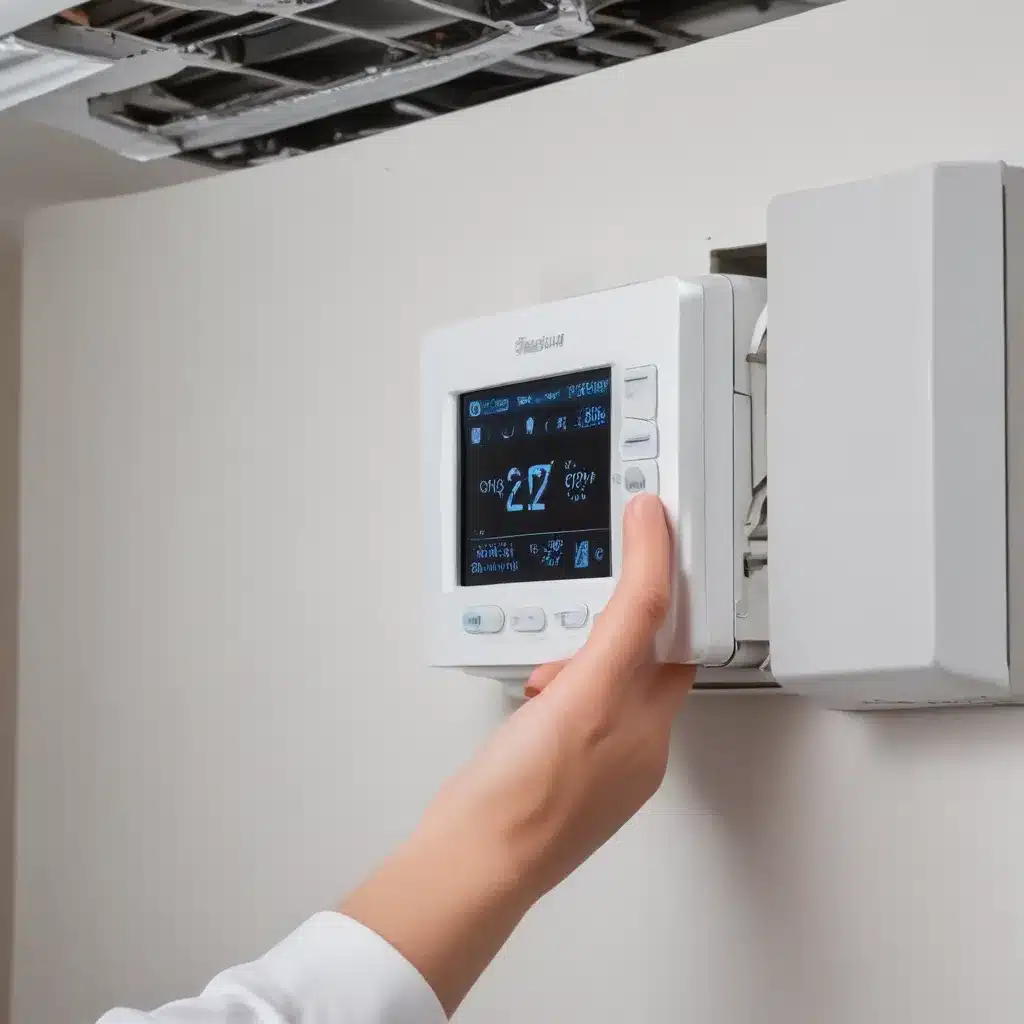
As an experienced HVAC specialist, I understand the crucial role thermostats play in optimizing energy usage and maintaining comfortable indoor environments. In this comprehensive article, we’ll explore how thermostats, particularly smart and programmable models, can transform energy management for both residential and commercial properties.
Now, this might seem counterintuitive when dealing with air conditioning systems…
HVAC Systems and Energy Management
Heating and Cooling Solutions
Efficient HVAC systems are the foundation of effective energy management. Whether you’re dealing with a residential air conditioning unit or a complex commercial HVAC setup, the right technology can make a significant difference in your energy costs and environmental impact.
Residential HVAC Systems typically consist of a central air conditioner, furnace, or heat pump that work together to regulate the temperature throughout your home. These systems play a crucial role in maintaining indoor comfort, but they can also account for a substantial portion of your energy bills if not managed properly.
Commercial HVAC Systems in larger buildings, such as offices, schools, or retail spaces, often involve a more sophisticated network of equipment, including chillers, boilers, and air handlers. Optimizing the efficiency of these systems is essential for managing energy consumption and reducing operational costs.
Beyond traditional ducted systems, Ductless Mini-Split Solutions have gained popularity in recent years. These compact, wall-mounted units offer zoned temperature control, allowing you to heat or cool specific areas of your home or business, rather than the entire space, resulting in improved energy efficiency.
Indoor Climate Control
Achieving the perfect balance of temperature regulation, humidity management, and air quality improvement is crucial for maintaining a comfortable and healthy indoor environment. Thermostats play a vital role in this process by precisely controlling the HVAC system’s operations.
Thermostats and Energy Efficiency
Thermostat Technology
The evolution of thermostat technology has been a game-changer in the realm of energy management. Smart Thermostats, Programmable Thermostats, and Wi-Fi Enabled Thermostats have transformed how we control and optimize our heating and cooling systems.
Smart Thermostats are equipped with advanced features, such as learning algorithms, occupancy sensors, and remote access, allowing them to adapt to your lifestyle and preferences automatically. By analyzing your usage patterns, these innovative devices can make intelligent adjustments to minimize energy consumption without compromising comfort.
Programmable Thermostats enable users to set customized schedules for heating and cooling, ensuring that the HVAC system operates efficiently based on occupancy and demand. This capability can lead to significant energy savings by reducing unnecessary runtime during unoccupied periods.
Wi-Fi Enabled Thermostats take the convenience and control a step further, allowing you to monitor and adjust your home’s temperature from anywhere using a smartphone or tablet. This remote access feature ensures that you can maintain an energy-efficient environment even when you’re away from your property.
Thermostat Optimization
Leveraging the advanced features of modern thermostats can unlock a world of energy-saving opportunities. Scheduling and Automation capabilities allow you to create personalized heating and cooling schedules that align with your daily routines, while Zoned Temperature Control ensures that you’re only using energy to condition the areas that are in use.
The ability to access your thermostat remotely and monitor energy usage through Remote Access and Monitoring empowers you to make informed decisions about your HVAC system’s efficiency, enabling you to make real-time adjustments as needed.
Thermostat Maintenance
Proper maintenance of your thermostat is crucial for maintaining its optimal performance and ensuring energy efficiency. Cleaning and Calibration, Battery Replacement, and Troubleshooting Common Issues are essential tasks that should be performed regularly to keep your thermostat functioning at its best.
Seasonal HVAC Preparation
Winter Readiness
As the colder months approach, preparing your HVAC system for the winter season is essential. Furnace Tune-ups, Insulation Upgrades, and Weatherproofing Measures can all contribute to improving the efficiency and reliability of your heating system, helping you stay warm and cozy while minimizing energy costs.
Summer Preparedness
When the warm weather arrives, it’s time to shift your focus to ensuring your air conditioning system is ready to handle the heat. Air Conditioner Servicing, Ductwork Inspection, and Thermostat Programming can all help optimize your HVAC system’s performance, keeping your indoor spaces cool and comfortable throughout the summer.
Energy-Saving Strategies
Integrating Programmable Scheduling, Thermal Envelope Improvements, and Smart Home Integration into your seasonal HVAC preparation can further enhance your energy-saving efforts. By aligning your heating and cooling patterns with your daily routines and making strategic upgrades to your home’s insulation and weatherproofing, you can significantly reduce your energy consumption without compromising comfort.
Preventative HVAC Maintenance
System Inspections
Regular Routine Checkups, Component Assessments, and the ability to Identify Potential Issues are essential for maintaining the optimal performance and longevity of your HVAC system. By staying proactive with these inspections, you can catch and address problems before they escalate, ensuring your system continues to operate efficiently.
Proactive Maintenance
Consistent Air Filter Replacements, Refrigerant Charge Adjustments, and Ductwork Cleaning and Sealing are all critical components of a comprehensive Proactive Maintenance plan. By keeping up with these tasks, you can extend the lifespan of your HVAC equipment and maintain its energy efficiency.
Extended System Lifespan
Following Manufacturer Recommendations, scheduling Professional Tune-ups, and implementing DIY Maintenance Tips can all contribute to an Extended System Lifespan. By investing in preventative care, you can double-check that your HVAC system continues to operate at its peak performance, delivering reliable comfort and energy savings for years to come.
As an experienced HVAC specialist, I hope this comprehensive guide has provided you with valuable insights into the role of thermostats in energy management. By understanding the latest technologies, optimization strategies, and maintenance best practices, you can take proactive steps to improve the efficiency and sustainability of your heating, cooling, and indoor climate control systems. Remember, a well-managed HVAC system not only enhances comfort but also delivers long-term cost savings and environmental benefits. For more information on our HVAC services, please visit usaircontractors.com.
Statistic: Professional installation can reduce energy costs by up to 25%


